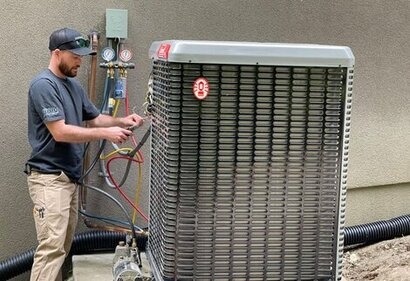
While the heat pump sector has always supported a phase-out by 2050, the new rules will be a significant burden in the short term. The industry is already ramping up production in line with EU goals, and now is tasked with changing most of its production lines in parallel.
Potentially, says the EHPA, the agreement could even slow the move away from fossil fuels in heating and cooling down, by making it more difficult to roll out heat pumps for various application fields in residential, commercial and industry.
“Every heat pump replaces a fossil fuel boiler, cutting carbon emissions” said Alessia Del Vasto, Policy Officer at the European Heat Pump Association (EHPA). “If there are not enough heat pumps, consumers will choose fossil heating instead. To avoid a shortage of heat pumps, the EU needs to give the sector clear financial and policy support to finalise the shift to non-fluorinated refrigerants that is already underway.”
The agreed new rules will see some F-gases still widely used by heat pumps banned as early as 2027. While this is not impossible, it requires unambiguous support by policy makers for R&D, installer training, and an upgrade of production facilities to safely handle the flammable refrigerants that will replace some fluorinated refrigerants. It also requires changes to rules covering how heating and cooling equipment can safely be used in buildings and industry, and awareness campaigns directed at citizens and consumers.
Barriers and solutions to a faster heat pump roll-out are presented in the EU Heat Pump Accelerator. EHPA calls for them to be taken up in the EU Heat Pump Action Plan, which must also reflect the impacts of today’s agreement on refrigerant use.
One of the most impactful measures would be correcting the distorted energy pricing that favours fossil gas: in EHPA’s view electricity should be no more than twice the price of gas per kWh. Governments should apply lowest possible taxation rates on electricity and put in place lower VAT and tax breaks on heat pumps.
“The cleanest heating solution – heat pumps - must become the most economically attractive to activate end user demand” added Thomas Nowak, Secretary General of EHPA. “After today’s deal, this needs to be the focus of policy to ensure a fast energy transition within this decade.”
For additional information:

